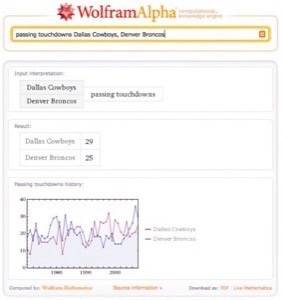Don’t worry, it’s not Twitter! For our Best LittleCo of 2009, we’ve chosen a small company whose product launched in 2009 and quickly became a leading example of one of the year’s big trends: the real-time web.

Our pick for Most Promising is something that could change the way people search on the Web.
Last week we announced that Google was our choice for Best BigCo of 2009, due to its product innovation in 2009. Today we’re announcing Best LittleCo and Most Promising Company, as selected by the ReadWriteWeb writers.
This is the 6th year we’ve done this and many of the small companies we choose each year go onto much bigger things. Here’s a quick look back at previous winners:
- In 2008 we chose web office vendor Zoho as Best LittleCo and Brightkite as our Most Promising. Zoho is still competing well above its weight bracket against office software giants like Microsoft and Google. However it’s fair to say that Brightkite hasn’t delivered as much on its promise as we thought it might, due in part to the emergence of Foursquare as ‘the next big thing’ in mobile social networking.
- In 2007Twitter was Best LittleCo and in a break from tradition we named“the open source movement” as most promising. Twitter, of course, has since gone on to make a huge impact on the Web and media.
- In 2006YouTube was Best LittleCo and Sharpcast Most Promising. YouTube was acquired by Google in October of that year.
- In 2005 37Signals was Best LittleCo and Memeorandum (now Techmeme) and Digg were joint Most Promising.
- In 2004Ludicorp, creators of Flickr, was Best LittleCo and Feedburner Most Promising. Both went on to be acquired, by Yahoo! and Google respectively.
Now let’s find out who is ReadWriteWeb’s Best LittleCo of 2009. Then on page 2 we name our Most Promising company for 2010.
Best LittleCo of 2009: Aardvark
Aardvark (our initial review and then a comparison review) is a social search engine that combines artificial intelligence, natural-language processing and presence data to create what the company calls “the real-time Web of people.” The company was founded in 2007, but the product only launched in March 2009 at SXSW. It quickly became one of the companies we point to most when we discuss the Real-Time Web, one of the most significant trends of this year.

In our report on the Real-Time Web released in November, we described how it works:

“You can ask Aardvark any question, and it will try to find a person in your extended social circles who knows about that topic and is available to answer at that moment. Aardvark facilitates these conversations through a very polite IM bot, an iPhone app with push notifications, the company’s website, Twitter or email. Instead of broadcasting your question to every one’s stream of information, Aardvark delivers the question only to people who are relevant and available.”
Unlike Yahoo Answers or similar services, Aardvark doesn’t keep a repository of frequently asked questions. The service’s mission is to get you current answers from experts in your own social networks. On most days, over 85% of all questions get answered.
As we noted in our report, Aardvark’s got an all-star team of engineers from Google and Yahoo and high-profile investors. It’s already cutting deals with major tech brands and is rumored to be on Google’s acquisition list. Whatever happens to the company, the use cases for Aardvark are just beginning to be explored.
In short, Aardvark impressed us a lot this year and it made no fewer than 3 of our 2009 best-of lists:
- Top 10 Consumer Web Apps of 2009
- Top 10 Real-Time Technologies of 2009
- Top 10 Startup Products of 2009
Aardvark’s iPhone app was also popular with our writers, two of them putting it in their top 5 mobile web applications of the year.
Most Promising: Wolfram|Alpha
Wolfram|Alpha launched in May and ended up making our list of the Top 10 Consumer Products of the year. It was also the most hyped, with the possible exception of Google Wave.

Inevitably, Wolfram Research’s “computational knowledge engine” disappointed many who were looking for a Google killer. But Alpha introduced a new paradigm for search engines: Instead of giving you a long list of links, Alpha tries to give users an answer based on information from reputable sources. It also enables users to compute and calculate things off that information.
While it isn’t useful for everybody yet, the Wolfram Alpha team has worked hard to expand Alpha’s knowledge. If you are an engineer or scientist, Wolfram Alpha might just be the most useful web app for you. For the rest of us, Alpha’s ability to solve anagrams, aggregate weather data and tell you the distance between two cities proves to be useful, too – although not as useful as the service’s ability to solve complex math problems.
Wolfram|Alpha also launched a $50 iPhone application in October. Even though Wolfram Alpha’s web interface is available for free, the company insisted that its mobile application offered enough new features to justify this price.
We listed some initial use cases for Wolfram|Alpha in July, but it’s a safe bet to say that the best of this product will be seen in 2010 and beyond.

If Web 2.0 was about creating data (user generated content, to use the most familiar term for this), then the next generation of the Web is all about using that data. Wolfram|Alpha is premised on using and computing data, so we think it’s a product to watch in 2010.
Now let us know your thoughts on our picks for Best LittleCo (Aardvark) and Most Promising (Wolfram|Alpha).

















